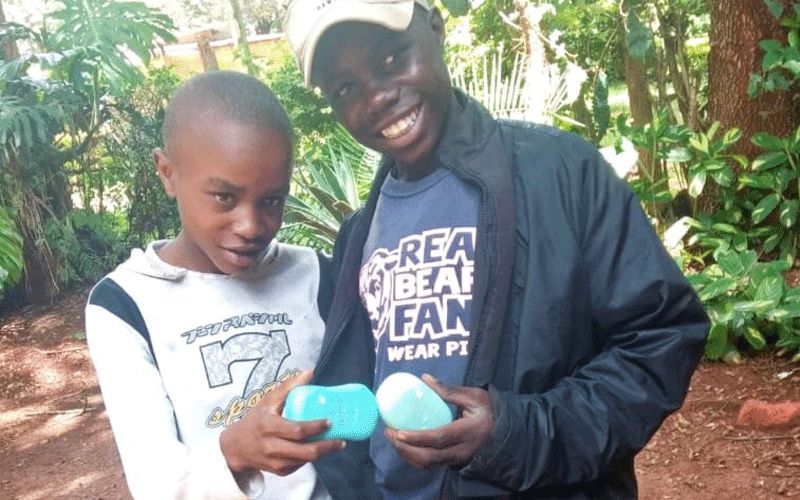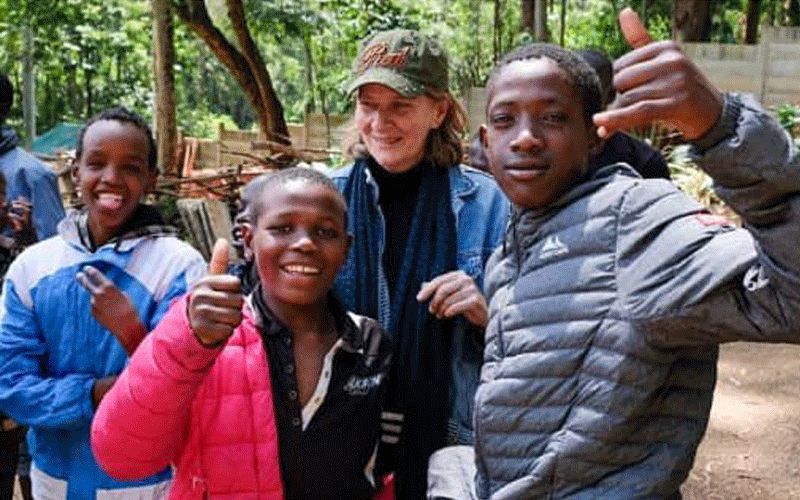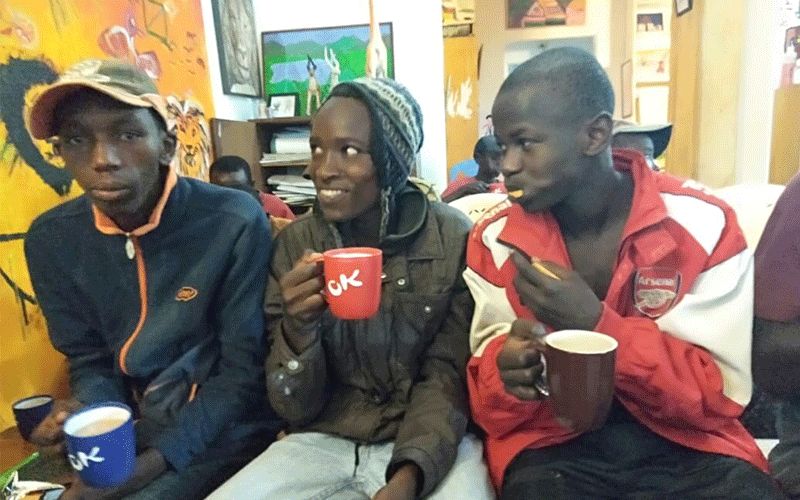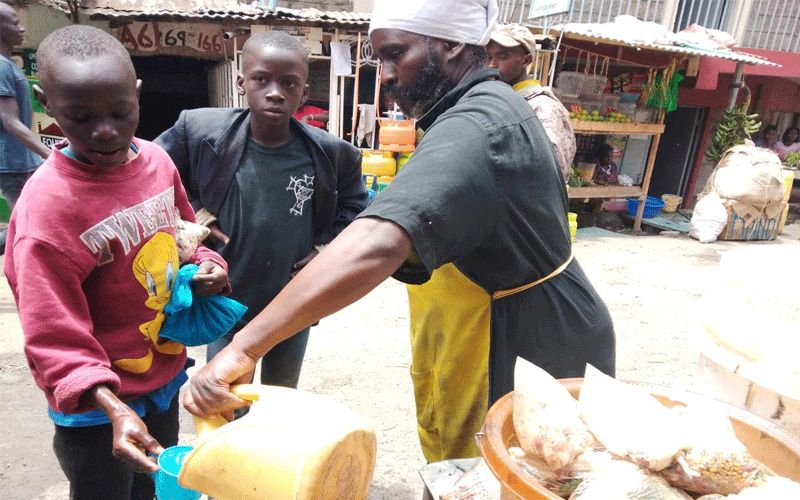Other children that Lenore sent back home a week after the Kenyan government announced the closure of institutions following the outbreak of COVID-19 in the country, she says, had been chased away by their family members and were back on the streets.
“One boy told me that his father told him to go back to where he had come from. Apparently, the boy was supposed to buy a bicycle for his younger brother to be allowed back home and so, when he failed to show up with the bicycle, his father told him that he was not welcome at home,” Lenore recounts, adding, “Most of these children prefer to stay on the streets even with the danger of COVID-19 than to be in their homes where they are not wanted.”

According to the Australian artist who founded Alfajiri Street Kids Art to enable street kids express themselves through art, the children have found love and acceptance at the facility.
Since its establishment, about 5 years ago, Alfajiri Street Kids Art has been able to get some 60 children, both boys and girls, completely out of the streets and has taken the children through school and tertiary institutions. Some have gone ahead to establish their own businesses around their city while a majority have been happily reunited with their families.
(Story continues below)

Lenore had a simple model in mind when she started Alfajiri Street Kids Art the moment she wrapped up her volunteering experience with Missionaries of Charity, Mother Teresa, that ran a number of programmes in Nairobi, including caring for orphans and children that were infected with HIV.
“I am an artist myself and having worked with very vulnerable children in Nairobi and seen the difficult life of children in Nairobi, I felt a strong urge to use my talent in changing the lives of street children,” says Lenore.
She adds, “My idea was simple. I wanted to establish a facility where the children would come whenever they wanted to express themselves through painting.”

That has been the core purpose of the facility to date. Lenore founded the organization in 2015 after volunteering with the Mother Teresa charity organization and also with the Mission of Charity priests based in Mathare Valley, one of Nairobi’s most notorious slums.
Children from various bases around the city report at Alfajiri Street Kids Art every day, take a bath, change their clothes and have a meal before they are given their painting materials. The clean children spent hours in silence pouring their emotions in paintings that they leave at the facility when they go back to their various bases where they spend long nights in anticipation of a new day with Lenore.
Out on the streets, the children who go around in soiled clothes, begging with bottles of glue stuck at the corners of their mouths, freely throw themselves at Lenore whenever she takes a walk around the city. The 67-year-old is a darling to the children who are shunned by other members of the society.

Most of the street children reside at Mlango Kubwa, one of the poorest parts of Mathare and the place where Mother Theresa first opened her Mathare mission. Mlango Kubwa is also one of Nairobi’s biggest dumpsites where the homeless children have make-shift sheds from plastic bags and sticks.
Most of the paintings reflect the children’s daily experiences with police that rough them up on the streets, their gratitude to the Australian artist and their hopes and aspirations in life. The paintings have attracted admiration at various exhibitions around Nairobi, including an exhibition in the Nairobi National Museum, which once featured 60 artists and 90 artworks made by the street children.
With time, and after many days of expressing their feelings through paintings, some children start showing signs of desire to leave the streets. These are taken to rehabilitation centres across the city and later enrolled in schools and vocational institutions. Those who wish to be reunited with their families are taken through intense integration programs with their families.

Alfajiri Street Kids Art is now registered in the Netherlands and will soon start exporting the children’s paintings overseas to increase awareness of the talented street kids and also help the organization raise funds.
“We have been busy trying to get ourselves recognized in the European Union and we just recently got registered in the Netherlands where we’ll be sending some of the paintings done by the kids. But with the whole COVID-19 thing, most of our activities have been affected in a terrible way,” says Lenore.
She divulges that a huge chunk of Alfajiri Street Kids Art activities is supported by donors in the United States, Australia and in Dubai who have halted their support due to COVID-19 pandemic.

“Bad things are happening so fast and we don’t know if we’ll achieve normalcy again. Our bigger donors have been withdrawing their support one by one because everyone is affected by the pandemic. In fact, I am on my computer drafting an appeal to one of the donors to reconsider withdrawing their support,” Lenore tells ACI Africa in a telephone interview on Monday, March 30.
She adds, “We are now looking into all possible sources and we are really appealing to local individuals, organizations and groups to help us take care of these vulnerable children on the streets.”
The lay missionary is also calling on parishes around major cities in Kenya to provide accommodation to street children who are having major challenges staying on the streets with the threat of COVID-19 infection.
“Many churches have very large conference spaces and other halls that can provide temporary accommodation especially at this time of the virus. They can be allowing the children to spend the night in these spaces so that they leave every day in the morning,” she says.
Alfajiri Street Kids Art has also partnered with small hotels in Nairobi’s Mlango Kubwa, and in places within the city where the street children have established their base to offer the children food free of charge, giving these children a livelihood that keeps them hopeful each day.
Agnes Aineah is a Kenyan journalist with a background in digital and newspaper reporting. She holds a Master of Arts in Digital Journalism from the Aga Khan University, Graduate School of Media and Communications and a Bachelor's Degree in Linguistics, Media and Communications from Kenya's Moi University. Agnes currently serves as a journalist for ACI Africa.

















